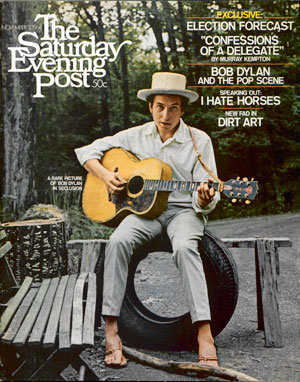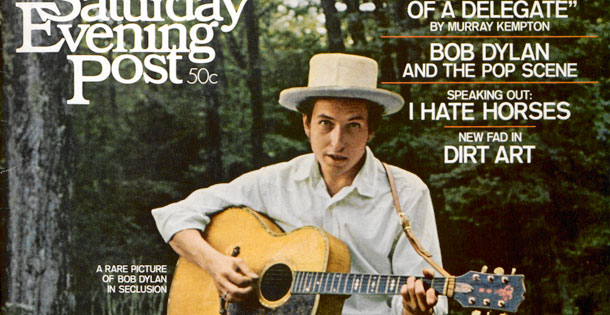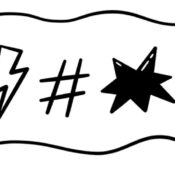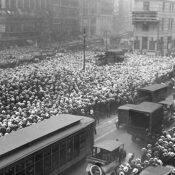As Bob Dylan began to play his electric guitar onstage at the Newport Folk Festival, members of the audience began booing. Just three songs later, Dylan walked off stage.

That brief performance 50 years ago is considered a pivotal moment in American music history. Some regard it as the birth of modern rock, the moment that folk music purists turned their backs on the electric, amplified music of the future.
Others who were at the concert assert that no one jeered Dylan for bringing an electric guitar. They claim the booing was in response to the sound system’s poor quality. One of Dylan’s backup musicians claims it was in response to them not being allowed to perform longer.
Whatever the reason, the concert marked one of many turning points in Dylan’s career. The most recent of his surprising turns is his latest album, Shadows in the Night, a recording of standards that date from 1923 to 1964.
“Enter the King, Bob Dylan” by Alfred G. Aronowitz recounts the changes of this continually evolving musician at age 27 just months after Dylan released John Wesley Harding. In the five-plus decades of his career, Dylan has influenced and explored folk, rock ’n’ roll, gospel, and more. The 1967 album, Aronowitz noted, “pulled out the psychedelic plug and pointed the way toward country music.”
Become a Saturday Evening Post member and enjoy unlimited access. Subscribe now




Comments
I really appreciate this feature on Bob Dylan who remains current and relevant into the present day, never being predictable or resting on past success which he could do, but doesn’t. I appreciate your online reprint of the article on Dylan in this issue as well.
I must also comment on the beautiful, short-lived POST logo of later ’68 and ’69 that was a modern take on the original logo, actually transitioning the way for its return once again through 2012. The only thing I didn’t like seeing on this cover was ‘I Hate Horses’ in Speaking Out. Being one of my favorite animals, those words make me cringe. I know I should read it before judging, but still.